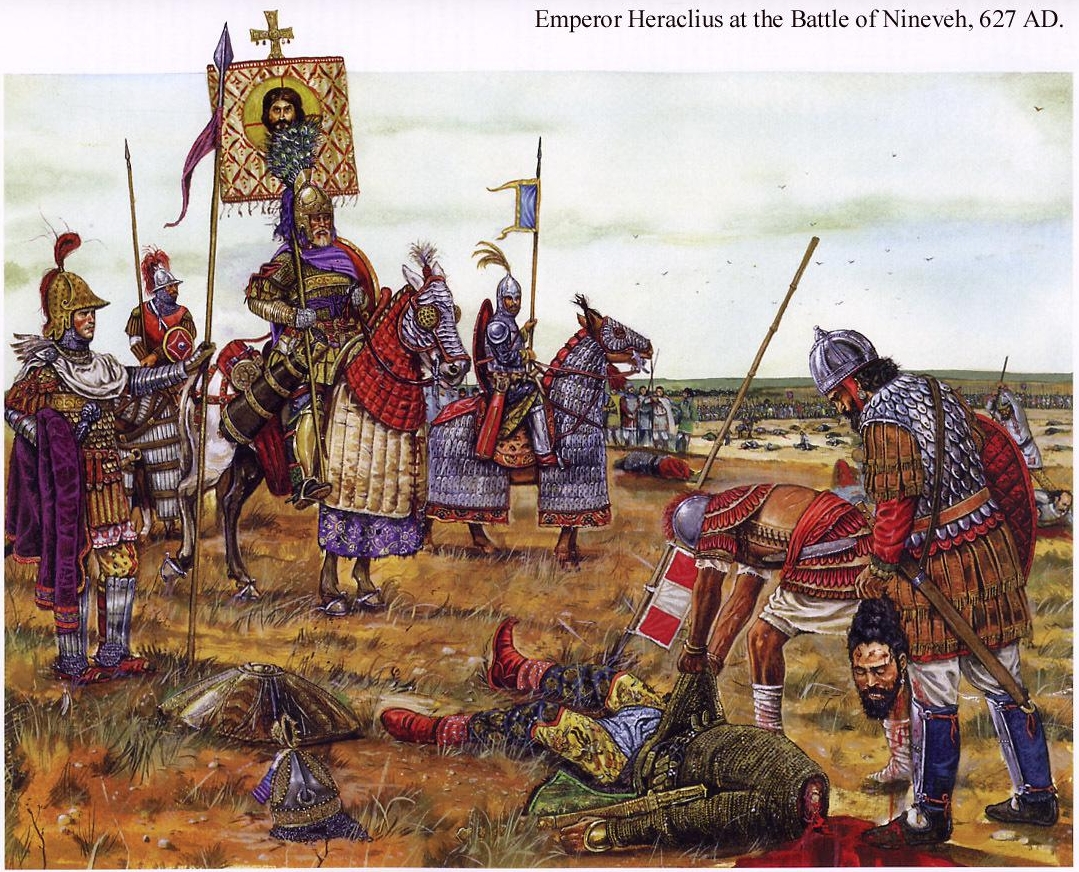
627
Battle of Nineveh.
Emperor Heraclius defeats the Persians and saves eastern Christianity.
Early in the seventh century things looked pretty bad for the Byzantine empire, beset by pagan Slavs and Bulgars to the west and by Persian Zoroastrians on their eastern borders. The capital, Constantinople, was under siege and with the help of Jewish rebels, Persians had conquered much of the Levant. In 614 they took Jerusalem and captured the holiest of relics, the True Cross on which Jesus had been crucified.
While the great walls of Constantinople resisted the besieging armies, Heraclius led a force deep into the Persian empire. On this date in 627 he defeated a Persian army led by their emperor Khosrau II and precipitated a civil war in which Khosrau was deposed and Persia accepted terms to end the war. All conquered territories were returned to the Byzantines as was the True Cross which Heraclitus returned to the Church of the Holy Sepulchre.
Heraclius had saved the empire from attack but he failed to bring about religious unity with his theological compromises. In a few years Muslim armies would explode out of Arabia, overwhelm the exhausted Persians and conquer most of the territory Heraclius had fought for. It would take them another 800 years, however, to win Constantinople.